How Human Experience Can Fight The Great Resignation

The Great Resignation. The Great Coasting. The Great Bored Out. Call it what you want, but right now employees are clearly in the driver’s seat.
Employees have greater choice and control over their career destinies and feel empowered to speak up when seeking clarity, as they are hungrier for information than ever before. They want to know what’s going on, how it impacts them, and whether company decisions are socially responsible.
Every choice a company makes, from selecting a health benefits plan to communicating company values, affects employee satisfaction. That’s why prioritising employee engagement across every aspect of how employees interact with the organization is more important than ever. Ensuring that employees have positive experiences within the company is critical for talent retention, attraction, and business success. It’s also just the right thing to do.
As your organisation evolves, your approach to employee engagement should evolve, too. What worked pre-pandemic, or even during the last two years, may not work today. So how can organisations keep employee engagement at the heart of everything they do today, while looking ahead to constantly improve?
Here are 10 strategies companies can adopt to ensure employee engagement is woven into the fabric of their organisations:
Understand that positive employee engagement is everyone’s responsibility
Providing and nurturing positive workplace experiences is the responsibility of everyone at an organisation. It doesn’t matter if you’re leading HR, running a business division, or working as an employee on a shop floor, we all have a responsibility to create a positive workplace culture for ourselves and the business. According to Josh Bersin, a leading HR tech analyst, “Employee experience is a company-wide initiative to help employees stay productive, healthy, engaged, and on track. It’s no longer an HR project. It is now an enterprise-wide strategy.”
Keep talking
Find reasons to check in with people – formally and informally – on a regular basis. People often ask me about the nuances of communicating with remote versus in-person/hybrid employees. It is important to have one unified approach to ensure everyone is engaged, but you do need a different set of tools to address both populations. It’s important to remember, though, that whether you’re communicating face-to-face or screen-to-screen, or even a bit of both, employees will only share candid feedback if they feel a sense of psychological safety. Keeping trust and respect at the centre of the employee-employer relationships is key and that comes through regular and seamless conversations.
Leverage data and insights. Forsta powers the technology that helps companies gather and analyze data, and identify the insights needed to improve experiences for a variety of audiences to drive better business performance. We try to walk the talk as much as possible, and ensure that we are also tapping into and acting upon data and insights to create the best workplace for our own employees. For example, we run quarterly eNPS (Employee Net Promoter Score) surveys, and the most recent one we did was up 22 points from the previous year. That’s a solid shift — and a good indicator of how we’re listening to the feedback that we receive from our employees and making sure that we’re prioritising our initiatives to address this.
What type of data you track and how you use it will vary, of course, depending on the needs of your organisation. How you use those findings will make the biggest difference. Sometimes, a simple solution or change in practice is all that is needed to address a widespread employee concern. Small changes can have a big positive impact.
Focus on holistic wellbeing
Ensure that holistic employee wellbeing is a key focus of your employee engagement approach that is supported by leaders and managers. It’s good for the health of employees and the organization as a whole. According to a recent study from Gallup, employees who feel their employer cares about their wellbeing are 69% less likely to actively search for a job.
My team has found it helpful to roll out a global employee support program that uses regional data to provide tailored, local-language mental health resources on a country- and market-specific basis. In a less formal way, managers should be accommodating of how each employee addresses their own wellness, whether that is by blocking off time on their calendars for personal care (e.g., therapy, exercise), opting for camera-off videos calls, or a variety of flexible work-from-home arrangements.

Knowledge share
Employees today are less afraid to ask questions and demand information – and that’s a good thing. Employers need to be prepared to answer tough questions, provide sufficient information (with examples!), explain how the organisation reached a decision, and why it is taking a certain course of action. People aren’t satisfied with – nor will they stick around for – answers like, ‘because it makes sense’. People are no longer just making decisions on salary and benefits; they want to work for companies that are transparent and doing the right thing. We leverage our monthly Town hall Q&As as an opportunity for this type of transparent communications; we can’t get to all of people’s questions within the allotted time, so we follow up with written responses that we send out to all global employees.
Be intentional with people’s time
When people come together, whether it’s at the office, virtually, or a company event, it’s important to be thoughtful and intentional with how you spend your time together. The last thing you want is people questioning: Why am I here when I could do the exact same work – possibly better – from home? Or: Why am I in this meeting, when I could be getting actual work done? This becomes especially important when you are collaborating with peers across a global organization; make sure teams are utilizing those shared working hours in the best, most efficient way and honouring when employees are offline during their non-work hours. Showing respect for employees’ time demonstrates respect for employees.
Break the mold
Consider putting on special events (virtually or in-person), like problem-solving hackathons. Giving people something to focus on, outside of their routine work, is important for innovation and relationship-building. Hackathons, for example, have been happening for a while in tech circles with product and engineering teams, but we’re increasingly seeing these events held across businesses. It’s important for employees to step away from their day-to-day, and work on solutions for the business; problems that they’ve identified but they don’t have time to focus on. It gives them the opportunity to present creative, thoughtful ideas and work together as a team. It benefits the business and revitalizes people. (For large or global organizations, or companies with a variety of work times, crowdsourcing is a great, tech-enabled way to accomplish this in an asynchronous manner.) This type of engagement has never been more important.
Focus on retention, not exits
Don’t wait for the exit interview. Many companies get valuable insight from employees during their exit interviews. While these types of feedback sessions are important, it’s even more essential to interview employees throughout their employment so you can gather feedback in real-time and pivot as needed. Although “retention interviews” are not a new phenomenon, we’re seeing organizations lean into this approach even more right now, recognizing the impact it can have on employee satisfaction, business continuity, as well as recruitment and retention efforts. It gives you the opportunity to ask employees what is working well and what could make their experiences better. Companies can even leverage these interviews to find their happiest employees, people who can also potentially serve as brand advocates or ambassadors.
Elevate and care for your managers
Everybody wants to be a manager, but this is by far the hardest job in a company. There’s a lot at stake for these professionals – from managing their own wellbeing to navigating tremendous change. Organisations need to make sure they’re setting managers up for success, as well as giving experienced managers an opportunity to develop their leadership skills. At Forsta, for example, we are rolling out our new manager development programme, split into two cohorts — one for new managers and one for experienced managers. This approach will give people the opportunity to interact with peers they might not talk to on a daily basis, but who are up against similar challenges. There’s a sense of satisfaction that people get from hearing that others are dealing with the same sorts of issues that they are dealing with.
Prioritise being a Great Place to Work
At Forsta, we’re crystal clear that we want to be recognised as a Great Place to Work. It’s our barometer for success and one of our key pillars, and each employee has a role to play. We’re achieving our goal by keeping our lines of communication open with the executive team. Leadership is always willing to take a call from an employee or address a question or concern. And we are listening to our employees’ feedback in a variety of ways — keeping our salaries competitive, ensuring we have flexible work guidelines, showing people the projects that we are working on, and living our values
To become a Great Place to Work, organisations need to focus on it every day, create meaningful experiences for employees and get buy-in and genuine support from leadership.
Conclusion
It’s not a simple task to put employee engagement at the heart of your business – it requires work and a deep commitment to doing right by your people. But it is rewarding and perhaps, even, the most important business decision your organisation will ever make.
By Sara Cohen, the Chief People Officer at Forsta and has global responsibility for all things people related
Sara Cohen is the Chief People Officer at Forsta and has global responsibility for all things people related. Based in New York City Sara is responsible for developing Forsta’s people strategy and development across all our global locations. Sara’s goal is to ensure Forsta continues to lead the industry in its employee programs, while maintaining the strong culture that is unique to each office.
Sara’s career has mostly been spent working in global technology organizations. Sara loves having the opportunity to work with employees across the globe and thrives on growing and developing the people capabilities throughout an organization, particularly in growing unique and successful employee cultures.
Prior to Forsta, Sara spent several years at GroupM, leading the people team for Xaxis, a programmatic media agency. Previous positions in technology, media, advertising, and PR agencies have given her a unique insight to working in a fast paced, dynamic company like Forsta.


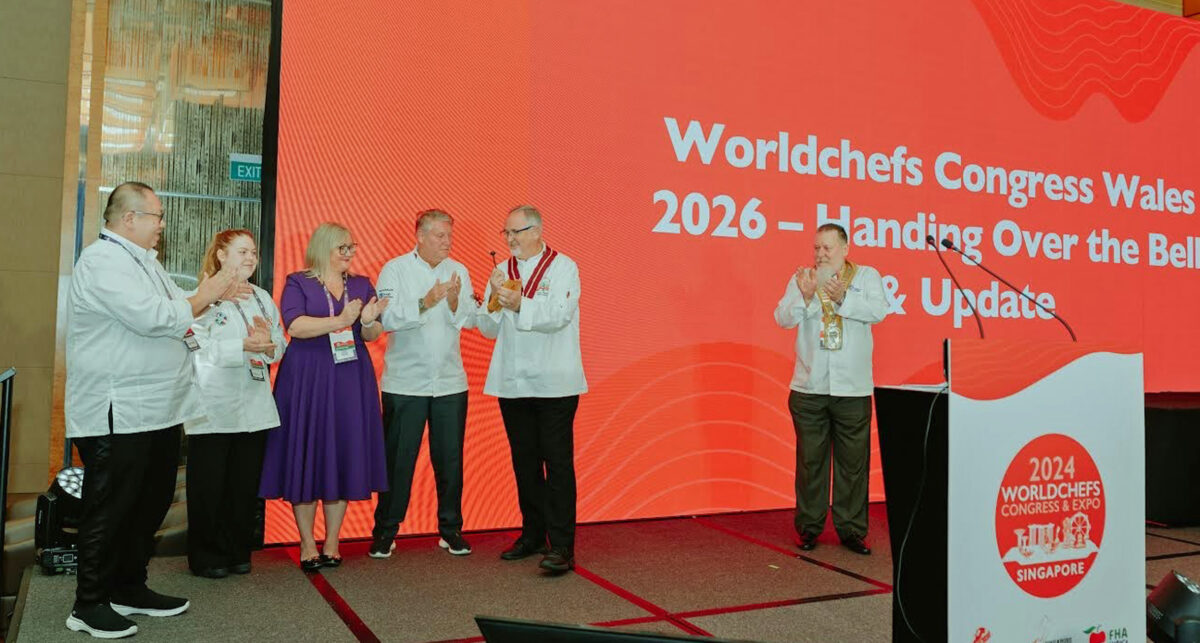



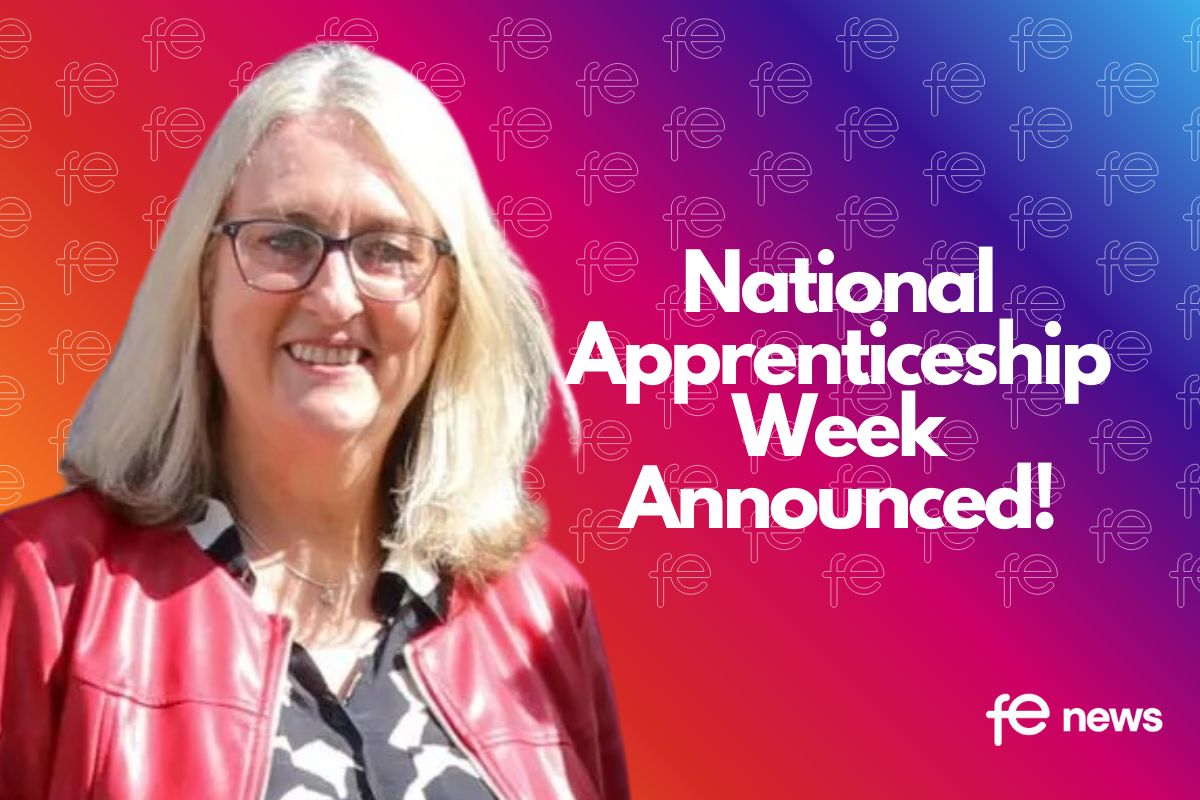
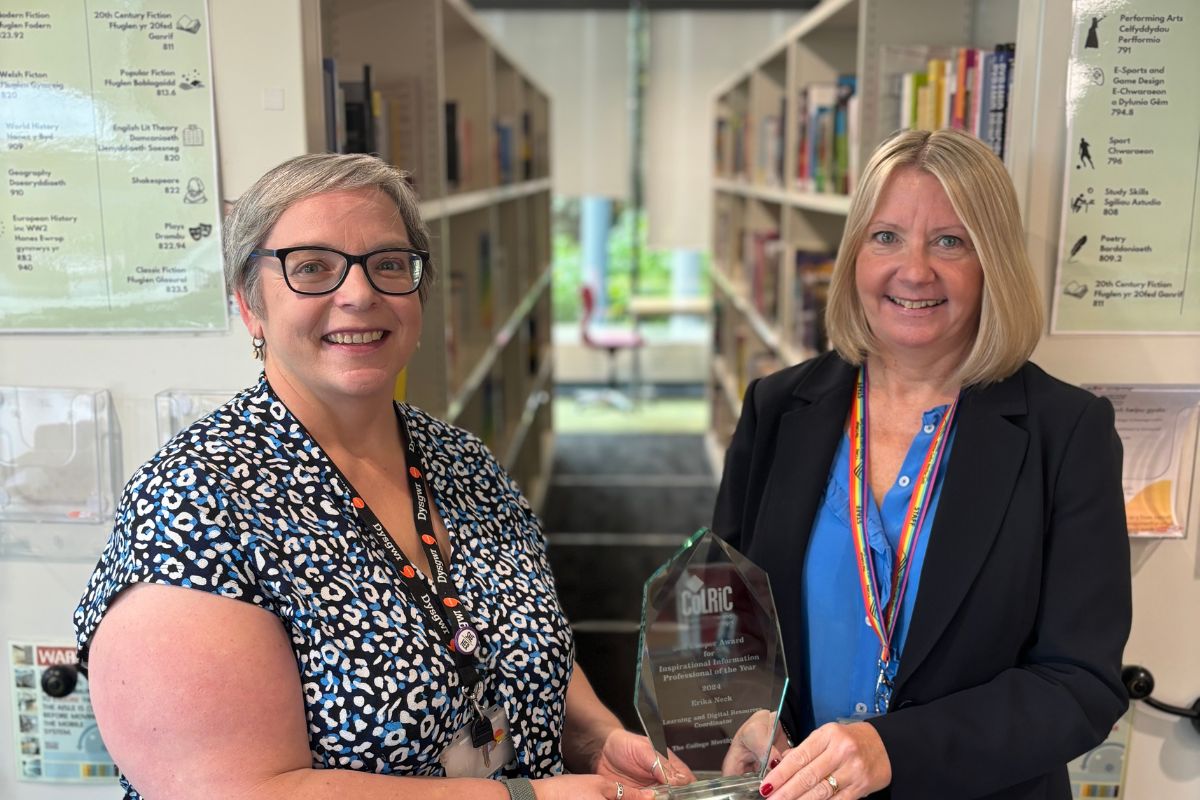
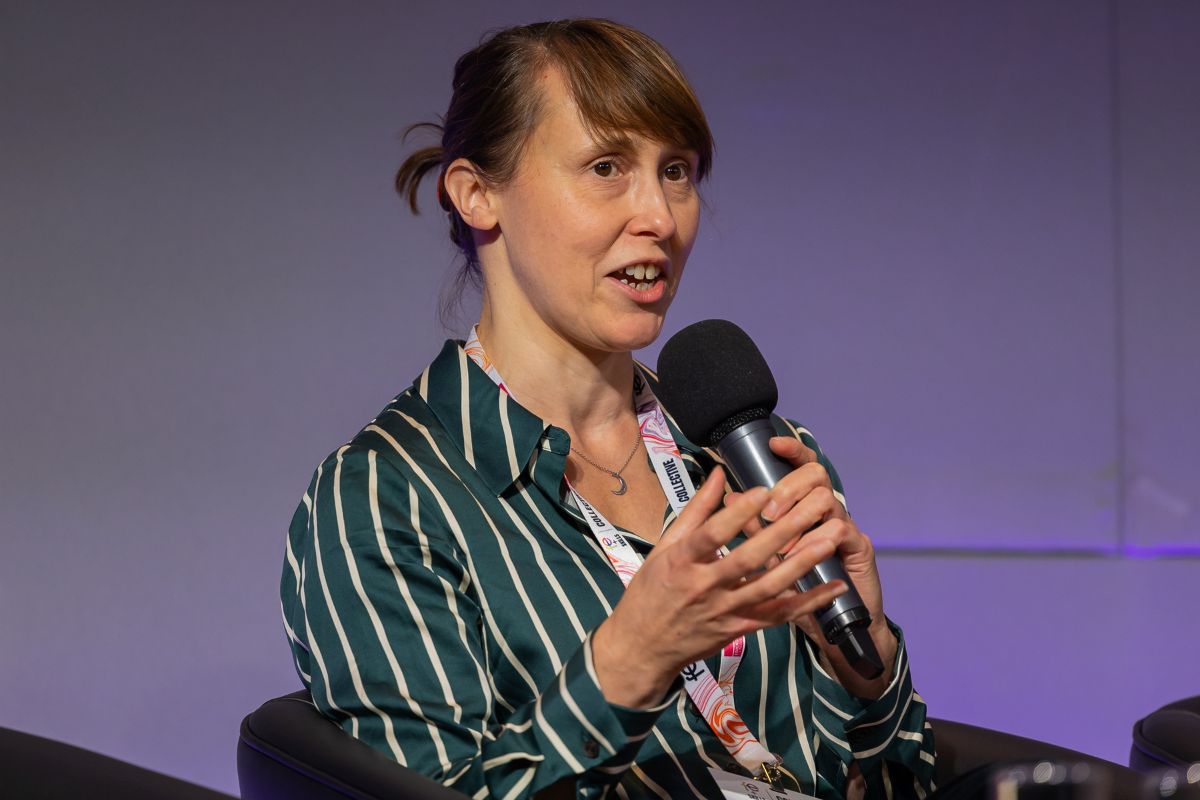
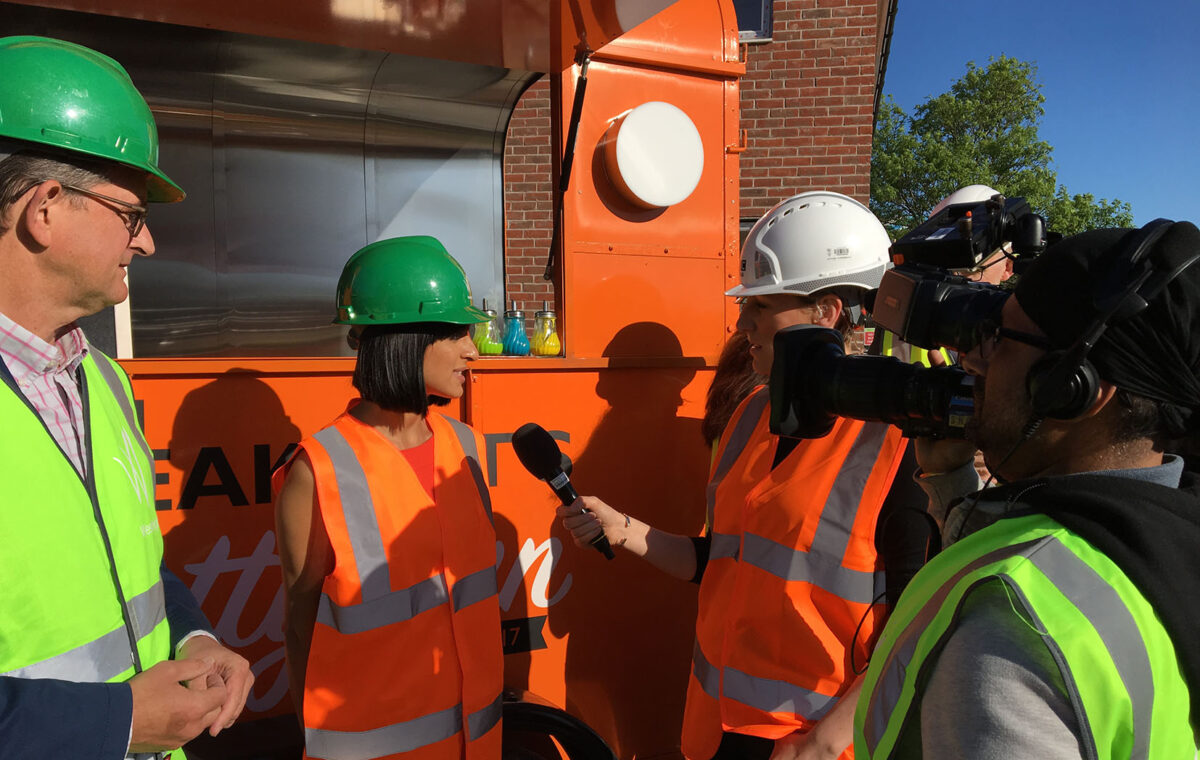
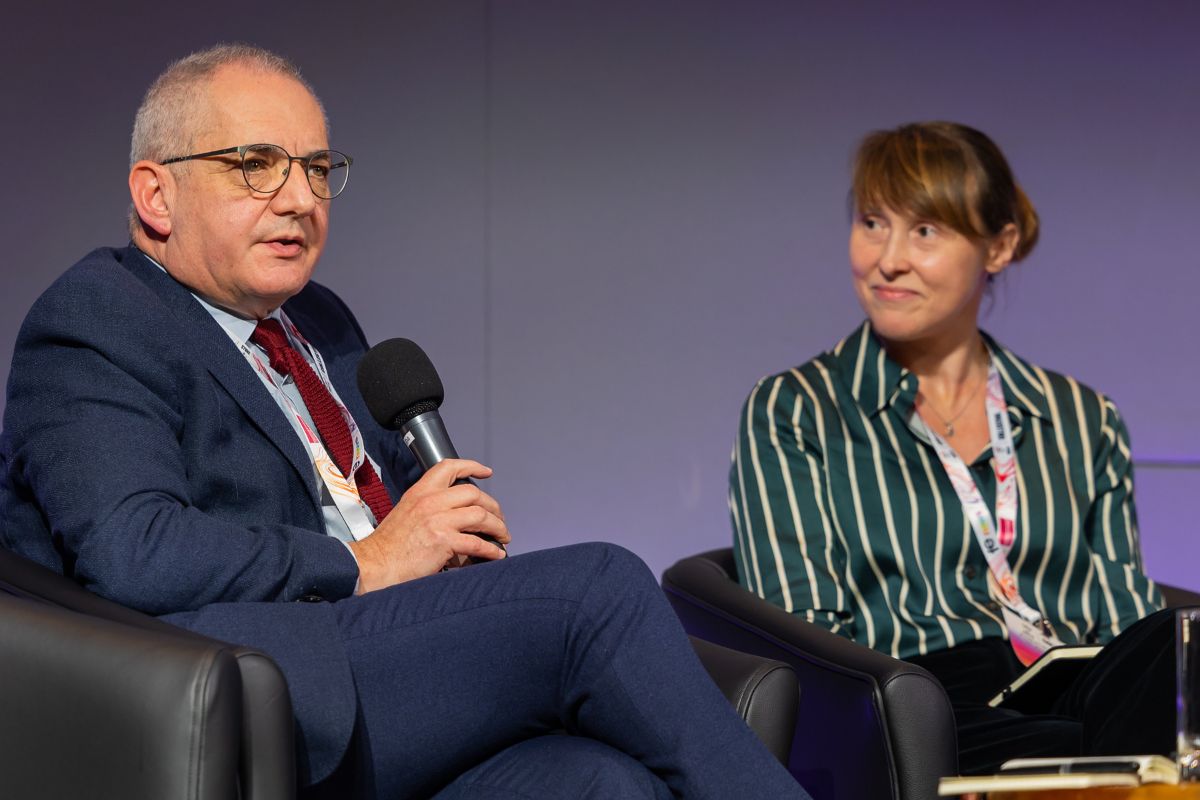
Responses